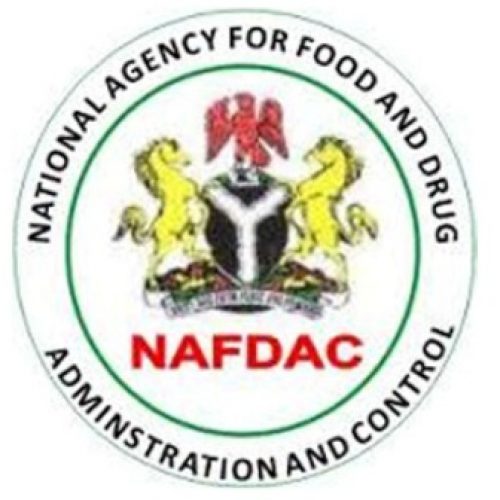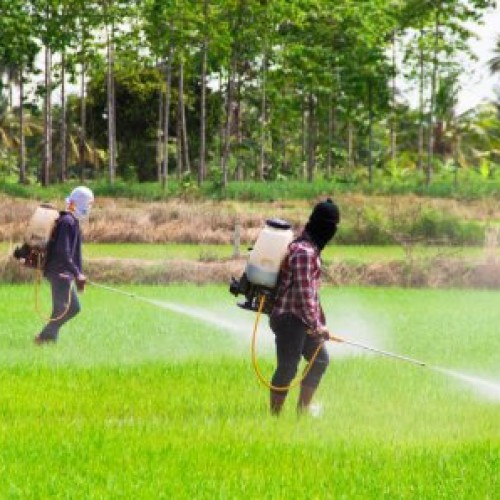Anthrax: Look out for the meat that you buy
Dr Ifedayo Adetifa is the Director General of the Nigeria Centre for Disease Control, NCDC. In this interview with Vanguard Newspaper, Adetifa speaks on the case of anthrax discovered in a farm in Niger State, insisting that people should refrain from eating animal hides, also known as ponmo, bush meat and dead animals “you did not kill”.
How do you describe the case in Niger State? Is it an outbreak?
We are worried about any case of anthrax; one case as we have at the moment is an outbreak. In this case, our colleagues in the Federal Ministry of Agriculture and Rural Development received word of ill animals and dead animals and went to investigate. Within a 48-hour period, a diagnosis of anthrax was made and immediate remedial action to ensure safe disposal of the animals and products.
The process of recalling the product that was processed in the facility also started. We were notified to look after the human health aspect because this is a disease that crosses both the human and animal health divide. Therefore, we are taking a one-health approach to the response.
What is the magnitude?
Every disease often starts with an index case. Sometimes you may know that case, sometimes you may see other cases that have resulted from that case.
In this context, this is the first animal with which we have diagnosed the condition and it is possible that there are other animals due to the fact that there was significant movement of animals in preparation for the last religious feast, Ileya.
It is possible that the infected animals from parts of the region where anthrax has already been reported may have made their way into the country, especially for animals that were brought in across the borders.
The advisory is for all animal owners around this farm and beyond that may have animals that are sick or that have died or animals that have been slaughtered whose blood did not clot to notify veterinary services immediately because this is most likely a case of animal anthrax.
“If you like bush meat, this could be a time to take a break from it, particularly if you don’t catch it yourself.”
Is it possible that anthrax is in other states and yet to be discovered by you and your team?
This is possible just as it is possible for anything. If you are talking about theoretical possibility, yes it is possible that there may be other cases. We can only react to what we know, and as part of the response to this, we can sensitise people to increase the threshold for reporting should they see animals that look suspicious so that veterinary public service can step in and make a diagnosis where it is necessary; then link the human health actions to it as soon as we have the confirmation of the animal’s disease.
What we can do now is work with Niger State public health authorities to make sure we get a detailed list of contacts of the animals in Niger State with a view of placing them on preventive treatment so that they don’t come down with anthrax.
What if the herders don’t bother about reporting cases or cannot access the facilities?
I think to an extent that may be an unfair generalisation. Herders actually care about their animals and are sometimes even accused of caring for their animals more than themselves. This disease, if it would kill animals, would affect the livelihood of herders or people who manage livestock.
The economic losses are significant and people who look after animals tend to report or seek help when their animals start to die. Indeed, anthrax can wipe an entire herd when actions are not taken. If you are thinking about the theoretical possibility, herders may be in far remote places when things start to happen before they can report or seek help but once they do that, veterinary services are equipped with vaccines to prevent other animals from dying. Herders won’t be reporting to NCDC, they will be reporting to the Federal Ministry of Agriculture and Rural Development.
Also, some states have a ministry of livestock. There is a connection between people in animal husbandry and veterinary services in most states.
It is an economic issue for people who look after animals and once they start to die, they try to report and find out why. What we hope to achieve is that anywhere people see acutely ill animals or animals dying, they should notify animal and human health authorities.
If they have access to human health authorities, they should please report because they can reach out to their animal health colleagues to sensitise them on the report received and get them to intervene. When Nigerians see sick animals or dead animals that don’t look like they have been killed by anyone, they should please notify human health or animal health authorities immediately and the animal should not be handled or touched.
“What we are saying is do not eat sick animals at all. Sick animals contain anthrax and animals that have died from anthrax contain anthrax. Anthrax is present in their skin, hair and meat. The people who work with hides and skin are at risk of anthrax if it came from a dead animal. At this point in time that we have a confirmed case, we are saying look out for the meat that you buy.”
How do you think anthrax got here so soon and out of the blues?
Anthrax exists in nature. The bacteria has the ability to make it exist in forms that make it very resistant to climatic or other extreme conditions and can survive in the soil for decades. The bacteria that causes anthrax is naturally occurring. Typically, they are brought to the surface when people dig or interfere with the soil or when animals are feeding or grazing.
When they ingest the spores or inhale the spores of this bacterium, the animals can get infected. It is in recognition of the naturally occurring bacteria that there have been efforts to weaponize and use it in terrorism attacks. It was not developed as a bio-weapon, anthrax actually occurs in nature.
If this is the first case, is this bacteria native to Nigeria?
As I said, there is anthrax in the environment. It is not that we have not had cases, we have not had cases for decades, but anthrax has happened in Nigeria. The typical nature of outbreaks when they occur is associated with the movement of animals that may be infected themselves. In the case of this farm in Niger State, there is a history in the timeline of introduction of new animals into the farm. Following interaction, existing animals appear to have come down with the infection and die. We know that there is anthrax already in the sub-region and we have already issued an advisory.
There were cases of anthrax already reported in Northern Ghana, parts of Togo as well. Herders move across the sub-region and when there are festivals or occasions that result in increase in demand for livestock, there will be mass importation from bordering states. If infected, it can introduce anthrax to a population of animals that are susceptible. Anthrax is prevented in animals by vaccination. In other places where there are high levels of vaccinated animals, there are fewer cases of anthrax.
Is it something that occurs seasonally and how long will it take before it disappears?
Anthrax isn’t seasonal. It is naturally occurring. A susceptible animal is needed to be exposed to anthrax pores that may be present in the soil around where it is feeding or importation of an infected animal that mixes with a pool of other susceptible animals.
The cause of events is determined by the response. So long as there is the ability to detect cases when it occurs, veterinary and human public health interventions can be mounted. In this case, animal health surveillance picked up and made a diagnosis of anthrax within 48 hours of notifications of animals dying.
Dead animals have been safely disposed of, meat products available on that farm have been safely disposed of and meat products that may have left the farm are being targeted for recall. There is ring vaccination of animals in the environs of this farm to make sure that inadvertent spread is avoided. For human health, all contacts are being tracked with a view of giving them preventive treatment to prevent any human cases from ensuing.
If all of those are effective, then we are better placed to bring this outbreak under control. We are alerting people beyond Niger State and we are sensitising healthcare workers to look out for human cases or animal cases to quickly ensure that identification is made and the necessary interventions are brought to bear to prevent further spread and human transmission where it is possible.
“It is a zoonotic illness like COVID-19, which might have started in animals then spread to humans.”
How strongly would you say people should be conscious of eating ‘ponmo’ or bush meat?
What we are saying is do not eat sick animals at all. Sick animals contain anthrax and animals that have died from anthrax contain anthrax. Anthrax is present in their skin, hair and meat. The people who work with hides and skin are at risk of anthrax if it came from a dead animal. At this point in time that we have a confirmed case, we are saying look out for the meat that you buy.
If you like bush meat, this could be a time to take a break from it, particularly if you don’t catch it yourself. For livestock, we ask that they be properly inspected and people who own animals should not take sick animals for slaughter.
How much coordination does the agency have with state infectious diseases officers as regards going to slaughter slabs to administer vaccines and is there a threat of transference from animals to humans if there is interaction during slaughtering or trading?
The bacteria that cause anthrax can infect both animals and humans. It is primarily an animal disease but humans who are exposed to sick animals are also at risk of catching anthrax. It is a zoonotic illness, and, by definition, zoonotic illness is primarily found in animals but is capable of infecting humans as well. Anthrax meets the definition.
It is a zoonotic illness like COVID-19, which might have started in animals then spread to humans. Other zoonotic illnesses are Lassa fever, monkeypox and the like. The abattoirs and meat sector are under the regulation of state ministries of agriculture and rural development or livestock. They have full access to abattoirs as they are meant to regulate abattoirs within states.
These authorities including the veterinary public health officers and veterinary services in respective states are being notified by our colleagues in the Federal Ministry of Agriculture and Rural Development to be on alert, sensitise the public and meat workers about the likelihood of anthrax.
The Senate suggested that your agency, the Federal Ministry of Agriculture and Rural Development as well as the Ministry of Health should urgently embark on a nationwide vaccination of livestock against anthrax. Is it something being considered by the NCDC and others?
We like the idea that the NCDC is being mentioned as being responsible for everything because it reflects the trust of authorities and the public in the agency. However, it is important to highlight that we don’t look after animals. The animal sector is under the jurisdiction of our colleagues in the Federal Ministry of Agriculture and Rural Development, specifically, under the veterinary and pest control services. There are vaccines to protect animals present in the country, which I think was produced by the National Veterinary Research Institute. At the moment, the strategy is to conduct ring vaccination around suspected or confirmed cases. Vaccines are always available and people who have animal farms and look after animals are meant to liaise with their local public health vet to arrange a vaccination programme for their animals.
It is similar to owning a dog as a pet and having a vet to give it necessary vaccines. The vaccines have always been available. Perhaps we will now see an increased uptake now that there has been confirmation of anthrax in the country.
For a mass vaccination campaign in terms of responding to the outbreak, it will depend on where the outbreak goes because it is a major endeavour to try and vaccinate all livestock in and around the country. The more important thing at the moment is to respond to what is going on and encourage animal owners to make use of available public health veterinary services to make arrangements for routine immunisation of their livestock.
Credit: Vanguard








0 Comments
No Comments Yet!
You can be first to comment this post!